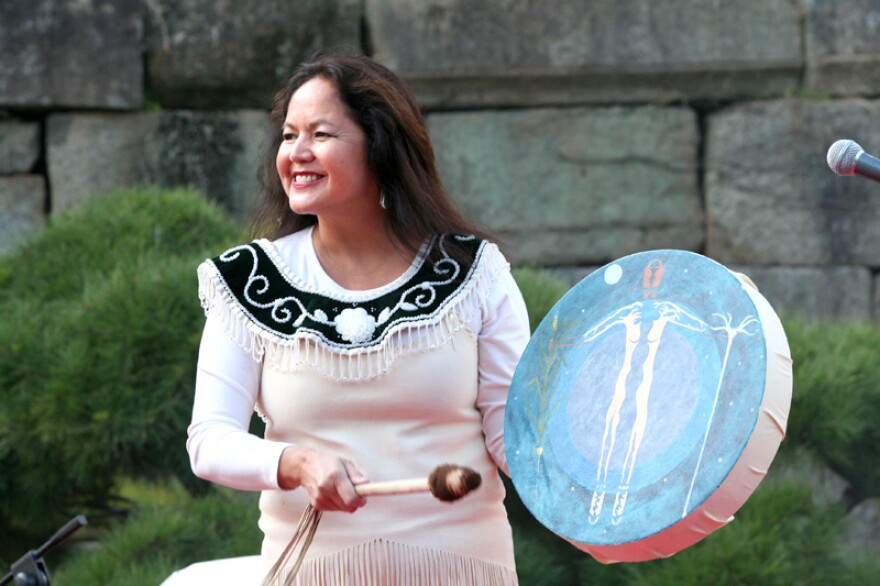
Native American musician Joanne Shenandoah was a citizen of the Oneida Nation, Wolf Clan, in upstate New York. She was born in Syracuse to Maisie Shenandoah, Wolf Clan Mother of the Oneida Nation and Clifford Shenandoah, an Onondaga Nation chief from the Beaver clan. She grew up on the Oneida Reservation where she learned traditional songs and music styles, and played piano, guitar, flute, and cello. She was given the name Tekaliwhakwah, meaning "she sings."
She made 23 recordings, wrote music and developed her own style, singing in English and in Mohawk or other Iroquois languages. Shenandoah was invited to Rome, Italy, to participate in the October 2012 celebration of the canonization of Kateri Tekakwitha, the first Roman Catholic Native American saint. She performed in major venues and at major public events, including at The White House, Carnegie Hall, and for five Presidential Inaugurations. In 2012, she received the Atlas Award for her work with the climate change movement.
Shenandoah was deeply committed to her Haudenosaunee culture She was married to Doug George-Kanentiio (Akwesasne Mohawk), a co-founder of the Native American Journalists Association and a published author. Her songs helped bring attention to the marginalization of First Nations peoples, and earned her more than 40 music awards. One of her proudest accomplishments was her symphonic odyssey Skywoman, about the Haudenosaunee Iroquois creation story.


